 W
WAn Advanced History of India is a book on Indian history written by R.C. Majumdar, H.C. Raychaudhuri and Kalikinkar Datta, first published in 1946.
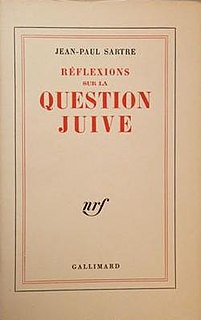 W
WAnti-Semite and Jew is an essay about antisemitism written by Jean-Paul Sartre shortly after the Liberation of Paris from German occupation in 1944. The first part of the essay, "The Portrait of the Antisemite", was published in December 1945 in Les Temps modernes. The full text was then published in 1946.
 W
WArvachin Kavita is a 1946 critical work by Gujarati writer, poet and critic Tribhuvandas Luhar, pen-name 'Sundaram'. The book offers a historical and critical survey of modern Gujarati poetry from 1845 to 1945.
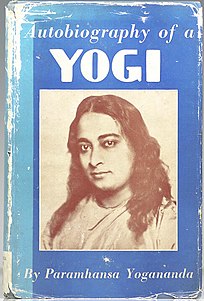 W
WAutobiography of a Yogi is an autobiography of Paramahansa Yogananda first published in 1946. Paramahansa Yogananda was born as Mukunda Lal Ghosh in Gorakhpur, India, into a Bengali Hindu family.
 W
WThe British Museum Library: a Short History and Survey is a book by Arundell Esdaile published by George Allen & Unwin, London, in 1946. It was reprinted in 1979 by Greenwood Press, Westport, Conn. from the 1948 ed. published by G. Allen & Unwin, London, which was issued as no. 9 of the Library Association series of library manuals. Esdaile's book serves as a historical survey of the British Museum Library when the museum and library departments were housed in the same building. The book traces the entire history of the institution, from 1753 to 1945.
 W
WThe Chrysanthemum and the Sword: Patterns of Japanese Culture is a 1946 study of Japan by American anthropologist Ruth Benedict. It was written at the invitation of the U.S. Office of War Information, in order to understand and predict the behavior of the Japanese in World War II by reference to a series of contradictions in traditional culture. The book was influential in shaping American ideas about Japanese culture during the occupation of Japan, and popularized the distinction between guilt cultures and shame cultures.
 W
WCome, Tell Me How You Live is a short book of autobiography and travel literature by crime writer Agatha Christie. It is one of only two books she wrote and had published under both of her married names of "Christie" and "Mallowan" and was first published in the UK in November 1946 by William Collins and Sons and in the same year in the US by Dodd, Mead and Company. The UK edition retailed for ten shillings and sixpence (10/6) and the US edition at $3.00.
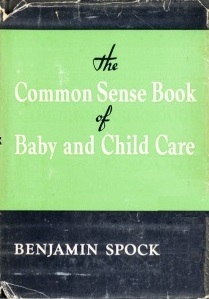 W
WThe Common Sense Book of Baby and Child Care is a book by American pediatrician Benjamin Spock and one of the best-selling books of the twentieth century, selling 500,000 copies in the six months after its initial publication in 1946 and 50 million by the time of Spock's death in 1998. As of 2011, the book had been translated into 39 languages.
 W
WConcept of the Corporation (1946) is a book by management professor and sociologist Peter Drucker. It is widely held to be the first book of its kind.
 W
WThe Discovery of India was written by India's first Prime Minister Pandit Jawaharlal Nehru during his imprisonment in 1942–1945 at Ahmednagar fort in present day Indian state of Maharashtra by the colonial authorities during the British Raj before the independence of India. The book was written in 1944 but published in 1946.
 W
WThe Doctor and the Soul is a book by Dr. Viktor E. Frankl, the Vienesse psychiatrist and founder of logotherapy.
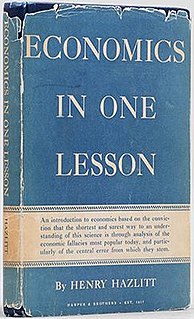 W
WEconomics in One Lesson is an introduction to economics written by Henry Hazlitt and first published in 1946. It is based on Frédéric Bastiat's essay Ce qu'on voit et ce qu'on ne voit pas.
 W
WEnemy Coast Ahead is an autobiographical book recounting the World War II flying career of Wing Commander Guy Gibson VC, DSO, DFC. It covers his time in RAF Bomber Command from the very earliest days of war in 1939 through to 1943.
 W
WExistentialism Is a Humanism is a 1946 work by the philosopher Jean-Paul Sartre, based on a lecture by the same name he gave at Club Maintenant in Paris, on 29 October 1945. In early translations, Existentialism and Humanism was the title used in the United Kingdom; the work was originally published in the United States as Existentialism, and a later translation employs the original title. The work, once influential and a popular starting-point in discussions of Existentialist thought, has been widely criticized by philosophers, including Sartre himself, who later rejected some of the views he expressed in it.
 W
WHiroshima is a 1946 book by Pulitzer Prize-winning author John Hersey. It tells the stories of six survivors of the atomic bomb dropped on Hiroshima. It is regarded as one of the earliest examples of the New Journalism, in which the story-telling techniques of fiction are adapted to non-fiction reporting.
 W
WA History of Philosophy is a history of Western philosophy written by the English Jesuit priest Frederick Charles Copleston originally published in nine volumes between 1946 and 1975. As is noted by The Encyclopedia Britannica, the work became a "standard introductory philosophy text for thousands of university students, particularly in its U.S. paperback edition." Since 2003 it has been marketed as an eleven volume work with two previously published other works by Copleston being added to the series.
 W
WI Chose Freedom: The Personal Political Life of a Soviet Official is a book by the Soviet Ukrainian defector Viktor Kravchenko. It was a bestseller in USA and Europe. The book was written by a defector from the Soviet Union, Victor Kravchenko, in 1946. A review was published in the New York Times that year. The book was published in Europe in 1947.
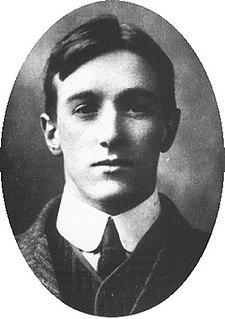 W
WRobin George Collingwood was an English philosopher, historian and archaeologist. He is best known for his philosophical works, including The Principles of Art (1938) and the posthumously published The Idea of History (1946).
 W
WIn Crocodile Land is a 1946 Australian book by Ion Idriess about life in the Northern Territory.
 W
WA Little Yes and a Big No is the 1946 autobiography of German artist George Grosz. The first edition was published by Dial Press in New York City, and was translated by Lola Sachs Dorin.
 W
WMan's Search for Meaning is a 1946 book by Viktor Frankl chronicling his experiences as a prisoner in Nazi concentration camps during World War II, and describing his psychotherapeutic method, which involved identifying a purpose in life to feel positive about, and then immersively imagining that outcome. According to Frankl, the way a prisoner imagined the future affected his longevity. The book intends to answer the question "How was everyday life in a concentration camp reflected in the mind of the average prisoner?" Part One constitutes Frankl's analysis of his experiences in the concentration camps, while Part Two introduces his ideas of meaning and his theory called logotherapy.
 W
WThe Pianist is a memoir by the Polish-Jewish pianist and composer Władysław Szpilman in which he describes his life in Warsaw in occupied Poland during World War II. After being forced with his family to live in the Warsaw Ghetto, Szpilman manages to avoid deportation to the Treblinka extermination camp, and from his hiding places around the city witnesses the Warsaw Ghetto Uprising in 1943 and the Warsaw Uprising the following year. He survives in the ruined city with the help of friends and strangers, including Wilm Hosenfeld, a German army captain who admires his piano playing.
 W
WScientific Man versus Power Politics is a 1946 work by realist academic Hans Morgenthau. The book is Morgenthau's first work and contains his most systematic exposition of a realist philosophy and a critique of a position he terms 'liberal rationalism'. Morgenthau argues that liberalism's belief in human reason had been shown to be deficient because of the rise of Nazi Germany and that emphasis on science and reason as routes to peace meant that states were losing touch with historic traditions of statecraft. The work marked out Morgenthau as the pre-eminent modern exponent of a Hobbesian view of human nature in international relations scholarship. Despite the contemporary association between (neo)realism and positivism Scientific Man has been considered a critique of attempts to place politics on a 'scientific' footing in works such as Charles Merriam's New Aspects of Politics.
 W
WScientists Against Time is a book by James Phinney Baxter III. It was published in 1946 by Little, Brown and Company, and won the 1947 Pulitzer Prize for History.
 W
WThe Second Forty Years is a 1946 nonfiction self-help book about aging, by Edward Stieglitz.
 W
WShelley: A Life Story is a 1946 biography of the poet Percy Bysshe Shelley by the poet and critic Edmund Blunden. The work was favorably reviewed and has been called the best life of Shelley.
 W
WStrange Defeat is a book written in the summer of 1940 by French historian Marc Bloch. The book was published in 1946; in the meanwhile, Bloch had been tortured and executed by the Gestapo in June 1944 for his participation in the French resistance. An English translation was published by W. W. Norton in 1968.
 W
WThe Survey of Palestine was a two volume survey of Mandatory Palestine prepared between December 1945 and March 1946, as evidence for the Anglo-American Committee of Inquiry. A supplement was published in June 1947.
 W
WTre kom tilbake is an autobiographical book from 1946 written by Norwegian pilot Jens Müller on his war experiences during World War II. The book centers particularly on his participation in the 1944 mass escape from the German prisoner-of-war camp Stalag Luft III. An English-language translation was published in 2019.
 W
WUnder the Red Sea Sun is a book by Edward Ellsberg describing salvage operations of the many ships scuttled by the Italians to block the port of Massawa on the Red Sea coast of Eritrea during World War II. Massawa's excellent harbor was vital first to the Italian then to the British war effort.
 W
WUnderground to Palestine is a 1946 book by American journalist I. F. Stone chronicling some of the hundreds of thousands of Holocaust survivors attempting to reach the Jewish homeland in Mandatory Palestine from post-WWII displaced persons camps.
 W
WWhen The Going Was Good (1946) is an anthology of four travel books written by English author Evelyn Waugh.